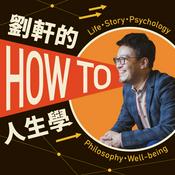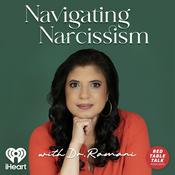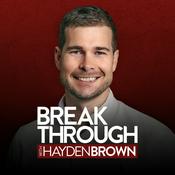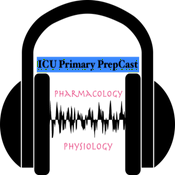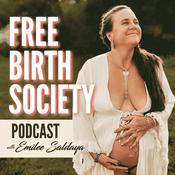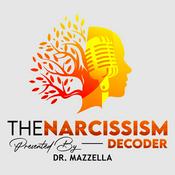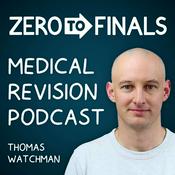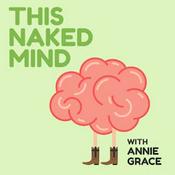The Centre for Healing Podcast
Ryan Hassan, Melissa Hiemann & Matt Kay
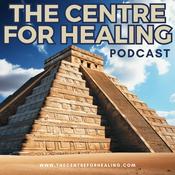
Latest episode
44 episodes
- Nicole Merges is the founder of Brightsol Wellness and the creator of Roots to Rise: Release,
Reclaim, Rise, a 90-day transformational program designed to help purpose-driven women get
out of their own way to uncover the root cause of what’s keeping them stuck, release old
patterns, and rise into a life aligned with their deepest truth and power. As a Root Cause
Therapist, certified trauma-informed manifestation coach, minister, chaplain, plant-based
certified coach, and member of the Tarot Mysticism Academy, Nicole blends deep spiritual
wisdom, root cause therapy, energy healing, and practical manifestation tools to help her clients
break free from cycles that no longer serve them.
Download the FREE Harmonious Life Tracker below to follow along:
https://mailchi.mp/75f19ff565ff/harmonious-life-tracker-download
Book a FREE Clarity Call
https://brightsolwellness.practicebetter.io/#/68a143affb48893091c598b5/bookings?step=services
Connect with Nicole via email:
[email protected]
Connect With Nicole On:
Instagram: https://www.instagram.com/nicole.merges/
LinkedIn: https://www.linkedin.com/in/nicolemerges/
Substack: https://substack.com/@nicolemerges
YouTube: https://www.youtube.com/@NicoleMerges
Facebook: https:/www.facebook.com/brightsolwellness - Trauma-Aware Parenting — A Conversation with Tara Russell & Melissa Hiemann
In this heartfelt and honest episode, Melissa Hiemann and Tara Russell — co-creators of the Trauma-Aware Parenting Course — open up about the real journey of parenting while healing your own inner child.
They share candid life updates and reflections on the messy, beautiful balance of raising kids while managing work, health, and personal growth. Tara speaks vulnerably about how becoming a parent led her to explore embodied processing and somatic awareness practices that completely changed the way she relates to her children.
Together, they explore how trauma shapes our parenting patterns, why nervous-system regulation is the foundation of connection, and how self-awareness helps us move from reactivity to presence. This conversation is both deeply personal and profoundly practical — a reminder that every step we take toward healing ourselves brings healing to our families, too.
If you’re ready to parent with more presence, compassion, and confidence, learn more about the Trauma-Aware Parenting Course here: https://www.thecentreforhealing.com/trauma-aware-parenting
Connect with Tara here - https://www.creatingmindfulminds.com/
Follow Tara on Instagram - https://www.instagram.com/centred.in.connection/ Friendships, client boundaries and connecting with your higher self with Valery and Melissa
21/1/2026 | 58 mins.In this episode of The Centre for Healing Podcast, Mel sits down with Valery Alignment—a multidisciplinary practitioner, mentor, and teacher—for a heartfelt, wide-ranging conversation that feels like two friends having coffee. Together, they explore what it really means to live and work as a trauma-informed practitioner, especially when your life is full (motherhood, business, healing work) and your nervous system is your most important tool.
Key topics & takeaways (bullet points)
Adult friendships and why healing can change your social circle
Why practitioners must develop stronger boundaries (time, energy, identity)
Pricing and charging as a nervous system and values conversation (not hourly worth)
Agency and sovereignty: trauma-informed work means respecting the client’s deeper “yes/no”
Nervous system + energetics: two expressions of the same system (the “antenna”)
The myth of “love and light” and why anger can be constructive and healthy
React vs respond: creating a pause before action
“You are the niche”: competition narratives dissolve when you embody your unique signature
Mentorship matters: self-awareness grows, but blind spots remain
Valerie’s program: The Holistic Human (Practice mastery, self-mastery, intuition mastery)
Guest bio
Valery is a holistic teacher, guide, and founder of Valery Alignment. Her work sits at the intersection of applied psychology, spirituality, emotional development, and energetic mastery. She supports practitioners, self-healers, and leaders in understanding human patterns, dismantling internal blocks, and aligning their lives and work with truth, integrity, and purpose. Valery is the creator of The Holistic Human and PostureCraft™️, and teaches through systems she has lived, tested, and embodied—bringing depth, clarity, and structure to inner work beyond trends or surface-level healing.
Links:
Website:
https://www.valeryalignment.au/
VA IG: https://www.instagram.com/valery.alignment/
PC IG: https://www.instagram.com/posture_craft/
The Holistic Human, designed to support practitioners to deepen their skills and self-mastery through three pillars:
https://www.valeryalignment.au/the-holistic-human-2026
Trauma-Aware Parenting - https://www.thecentreforhealing.com/trauma-aware-parenting
Find out more about The Centre for Healing and explore our trainings here - https://www.thecentreforhealing.com/- Show Notes: Healing with Pets and Humans
Guest: Fabienne Wydler
In this heartfelt conversation, we explore the powerful and often overlooked relationship between humans and their animal companions—and how healing can unfold on both sides of the leash.
Key Takeaways:
Our pets often mirror unresolved emotions, unexpressed needs, and weakened boundaries in their human companions, gently holding space for what wants to be seen and healed.
Deepening your connection and attunement with your pet can offer profound insights into your own emotional world, supporting personal growth and transformation.
Animals provide a non-judgemental, emotionally safe presence—particularly supportive for neurodivergent children who may find it easier to express themselves with animals than with people.
Behavioural challenges in pets (such as anxiety, aggression, or destructiveness) often point to deeper emotional or relational dynamics within the human–animal bond. Healing the root cause can create lasting change for both.
Resources Mentioned:
Fabienne Wydler’s website: fabiennewydler.com
Free booklet on emotional mirroring: Available for download via Fabienne’s website
Connect with Fabienne:
Instagram: @healingwithfabienne
YouTube: Heal With Animals
Facebook Group: Heal With Animals - Podcast Episode: Exploring and Inquiring into Parts
Guests: Ryan Hassan & Matt Kay
Episode Overview
In this insightful episode, Ryan Hassan and Matt Kay guide listeners through the fascinating world of parts work, explaining how different aspects of ourselves form, interact, and influence our behaviours. They share practical tools for relating to these parts with curiosity and compassion, as well as embodied techniques for deeper self-exploration.
Key Topics Covered
1. Understanding Parts
What are "parts" and how do they form?
How parts develop as coping mechanisms during childhood experiences and challenging environments.
Understanding internal conflicts and self-sabotaging behaviours that arise when parts are in opposition.
2. Relating to Parts
Adopting a compassionate and curious approach to your parts.
Welcoming all parts of yourself—even those you may dislike or want to suppress.
Recognising that parts are aspects of yourself, not separate entities.
3. Embodied Inquiry
Exploring parts through embodied inquiry, a somatic, felt-sense method.
Sample inquiry questions:
When did this part first emerge?
How has it served or sabotaged you?
What does it believe about you or the world?
What does it need, and what would happen if it weren’t present?
Key Insights & Takeaways
Parts are often created as survival mechanisms, helping maintain autonomy and connection, particularly after developmental trauma or a lack of safety and empathy.
Healing involves integration and wholeness, where all parts are acknowledged and understood.
Cultivating the ability to compassionately witness your parts and respond to their needs with empathy is crucial for personal growth, individuation, and lasting healing.
Resources & Next Steps
Embodied Processing (EP) provides a structured approach to exploring and working with parts.
Click the Embodied Processing free pre-training here - https://www.thecentreforhealing.com/embodied-processing-pretraining
For personalized guidance, consider reaching out to Ryan, Matt, or a certified EP practitioner.
More Education podcasts
Trending Education podcasts
About The Centre for Healing Podcast
Welcome to The Centre for Healing Podcast, where we dive deep into the world of emotional, mental, and spiritual well-being. Brought to you by The Centre for Healing, this podcast features expert insights, transformative stories, and practical tools for overcoming trauma, fostering resilience, and embracing holistic healing.
Whether you’re on your own healing journey or supporting others in theirs, each episode is designed to inspire growth, spark self-discovery, and empower you to live a balanced, thriving life. Tune in and join the conversation as we explore the many paths to true healing and wholeness.
Podcast websiteListen to The Centre for Healing Podcast, Good Life Project and many other podcasts from around the world with the radio.net app

Get the free radio.net app
- Stations and podcasts to bookmark
- Stream via Wi-Fi or Bluetooth
- Supports Carplay & Android Auto
- Many other app features
Get the free radio.net app
- Stations and podcasts to bookmark
- Stream via Wi-Fi or Bluetooth
- Supports Carplay & Android Auto
- Many other app features


The Centre for Healing Podcast
Scan code,
download the app,
start listening.
download the app,
start listening.













